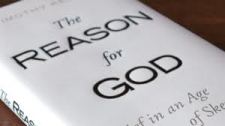I am saving my reply here, as it is already getting buried.
Dr. Craig, thank you for answering my question. I am glad you are a realist about the Good and concede *that* much to the realist. Do you actually mean the Platonist when you say you “see no reason to concede so much” to the realist (see links ‘a’ and ‘b’)?
a) https://www.facebook.com/reasonablefaithorg/posts/10152300210348229
b) https://www.facebook.com/williamlanecraig/posts/10203920584525754
You see the importance of conceding the existence of the Good to the realists (not the Platonists, to be sure). So why take an anti-realist position? Why not take a divine essentialist, rather than a Platonic essentialist, position? I don’t think that is conceptualist, because I see it as describing his nature–the Logos wills/thinks in accordance with his nature. I am curious how you base the Good in God in a non-conceptualist way, but think it would concede too much to base other seemingly abstract objects in God?–I say seemingly abstract, because they aren’t so abstract if they are grounded in God, are they? Btw, I’m not so sure Plato didn’t consider the Good to correspond to real Being, but that’s a slightly more involved discussion: http://www.christianapologeticsalliance.com/2012/10/16/resolving-euthyphros-dilemma
What I know of realism/anti-realism I learned from Christopher Norris’ “Epistemology”. It is interesting to note that Dummett: “denies the existence of objective, recognition-transcendent truth-values for statements of the so-called ‘disputed class’, i.e., those for which we possess no means of ascertainment or decisive proof”—including “standards of objective moral good or natural justice” (from Norris’ concluding postscript I). That’s why Norris is a convergent, or critical, realist — though, I think his morality lacks ontology (only in his mind, of course), considering he leaves no room for God in reality. The theist, however, grounds the Good in God, so…why not the rest of the “disputed class” (even to the same extent, where you do not consider essential certain extrapolations, only the basic core underlying all the extrapolations–like the Golden Rule, for example…the sum of the Law and the Prophets Jesus came to fulfill on the cross)? — how is the Good different from the rest of it, so that you would allow for its reality, but be anti-realist about the rest? Would Dummett agree with you that you have means of ascertainment or decisive proof for the Good? Do you think ontology is more decisive than justification when it comes to knowledge? I think both are needed (I agree with Plato, but not with Platonism).
No worries if you have no time to answer. Thank you for the answer you were able to provide. I am truly honored.









